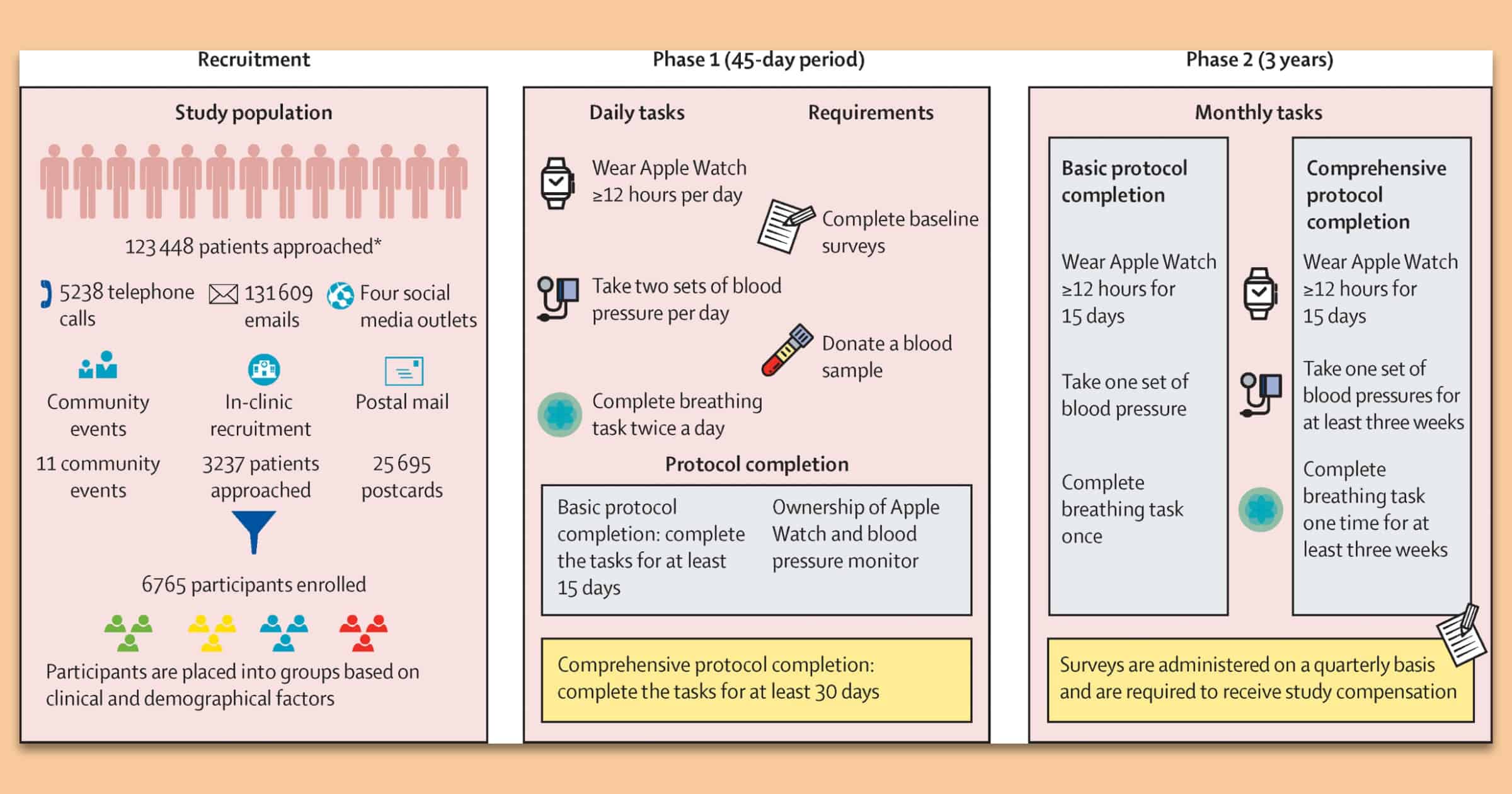The University of Michigan embarked on a three-year Apple Watch study called MIPACT. Short for Michigan Predictive Activity & Clinical Trajectories, it aims to give insight into baseline health status of a representative group of thousands of people using an Apple Watch.
The number of participants was 6,765 and 6,454 completed phase 1. 3,482 (54%) were women and 2,972 (46%) men; 3,657 (57%) participants were White, with 1,094 (17%) Asian and 1,090 (17%) Black participants. Participants wore their Apple Watch on almost 90% of the study days for an average of 15.5 hours a day.
MIPACT Study
The study is led by Sachin Kheterpal M.D., the associate dean for Research Information Technology and professor of Anesthesiology and launched in 2018 in collaboration with Apple. In the first 90 days, early results include:
- Mean systolic blood pressure was 122 mm Hg (SD 10) and mean diastolic blood pressure was 77 mm Hg (SD 8), with 167 312 (15%) measurements having a systolic blood pressure higher than 140 mm Hg or diastolic blood pressure higher than 90 mm Hg.
- Mean resting heart rate was 64 beats per min (SD 8). Blood pressure and resting heart rate varied by sex, age, race, and ethnicity, with higher blood pressures in males and lower heart rate in participants aged 65 years or older (p<0·0001).
- Participants took 7511 steps per day (SD 2805) and walked 6009 metres per day (SD 2608), varying across demographic and clinical subgroups.
These measurements were from a total of 1 107 320 blood pressure and 202 198 347 heart rate measurements over 90 days, with 172 (SD 50) blood pressure and 31 329 (SD 24 620) heart rate measurements per participant.
The paper notes that data from population subgroups such as elderly, minorities, and from certain clinical conditions are underrepresented, and the results could help doctors.

Fix your headline. Michigan State University is a cow college. The University of Michigan is one of the top research universities in the country. Never confuse the two